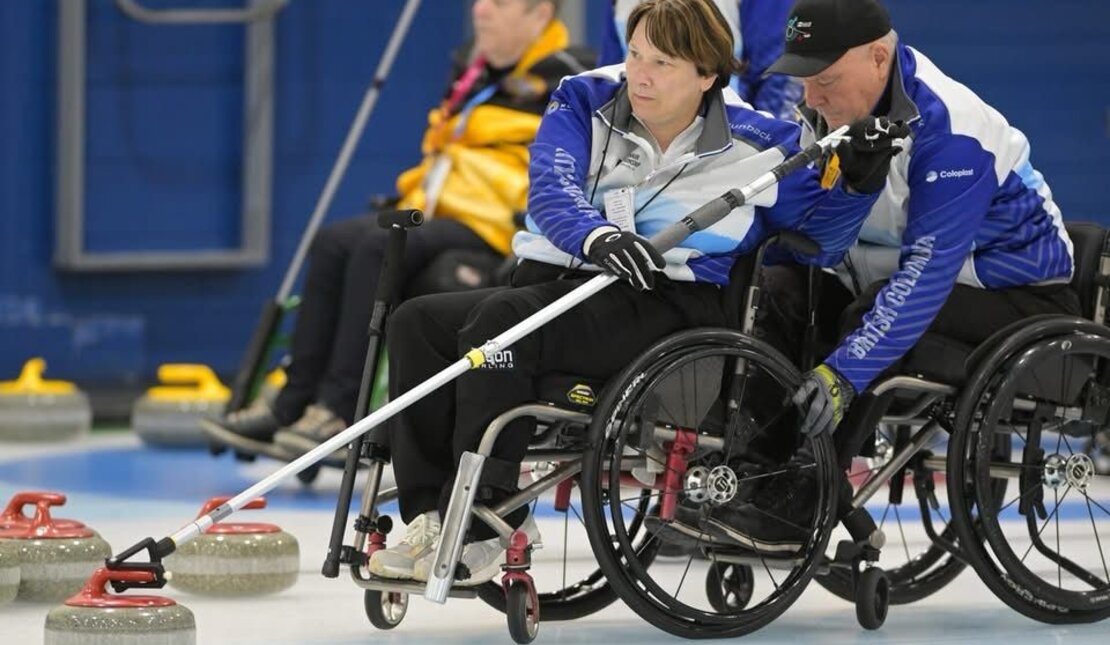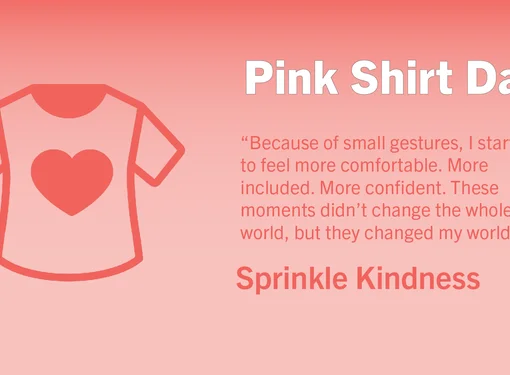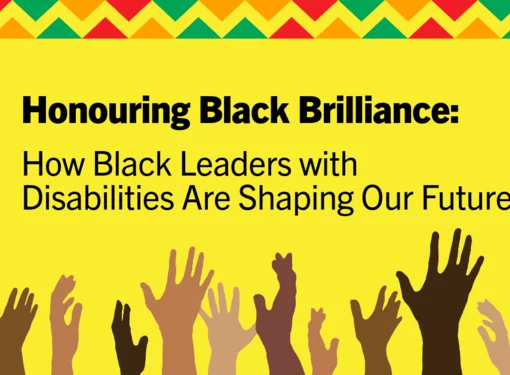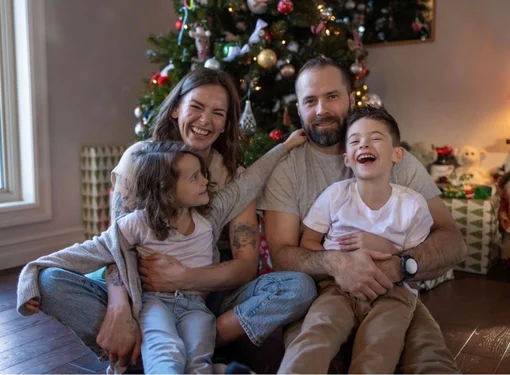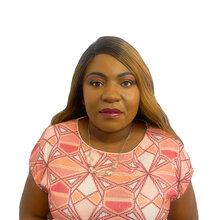From Resilience to the Nationals: How Kim Egger and a Community Made Curling More Accessible for All
Before life changed in 1984, Kim Egger’s world revolved around sport. She was one of those young athletes who stood out early, passionate, competitive, and talented enough to play on British Columbia’s senior women’s handball team at just sixteen. She represented BC at the Western Canada Games in 1983 and competed at the national level twice. Kim was among the top ten players in Canada, a rising star with a clear path ahead.
Then came the accident that changed everything.
In 1984, Kim was left a quadriplegic. Losing partial use of her arms and hands meant the athletic future she’d once envisioned seemed impossible. “At that time,” Kim recalls, “the sports available to people with significant disabilities were more like quad rugby or track. I didn’t think I could do well in either because of my injury. I thought I had to leave sport behind.”
But what Kim didn’t realize was that all the lessons sport had taught her - discipline, resilience, and mental toughness - would become the very tools that helped her recover. “When I was in the spinal cord injury unit, not sure if I would live or die, I asked someone to bring me my Team BC jacket,” she remembers. “I stared at it in bed and drew strength from all the skills and memories attached to it. I knew I had to keep pushing forward.”
Still, returning to sport felt out of reach for decades. Life threw more challenges Kim’s way, including two more serious accidents. One of them left her with severe post-traumatic stress disorder (PTSD), a battle that, in her words, “was more debilitating than becoming a quadriplegic.” For years, she rarely left her home. “After being hurt three times, I was afraid of everything,” she says. “It took a long time to even think about living a normal life again.”
After nearly a decade of therapy and small steps forward, Kim decided she wanted her life back, and she knew the key was teamwork. “I remembered how important being part of a team was. If someone was counting on me, I would show up. That’s just who I am,” she explains. “So, I knew sport could be my way out again.”
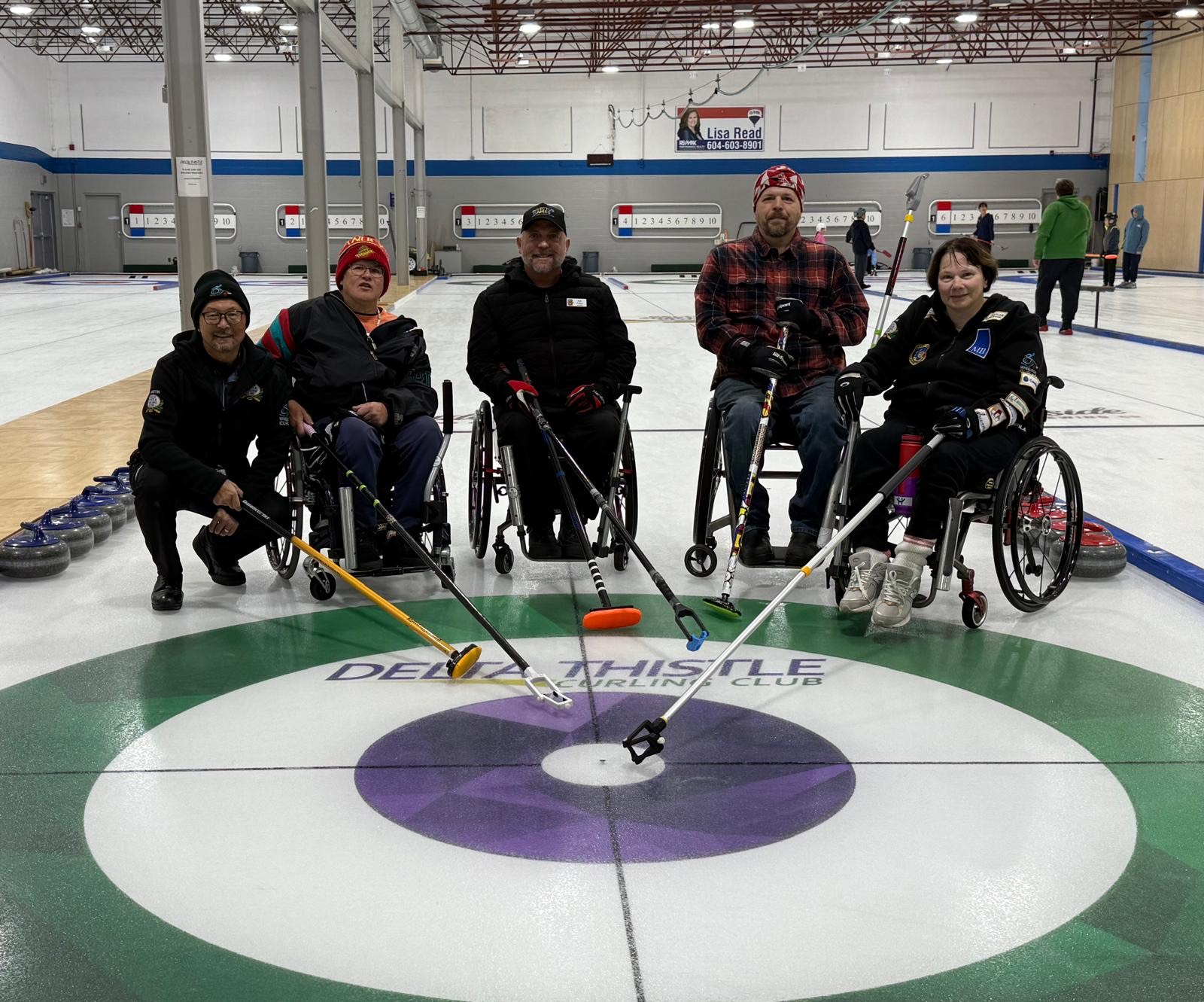
That’s when curling entered the picture.
At first, it wasn’t easy. “When you have quadriplegia, you cannot just pick up a curling stick and throw a 42-pound rock seventy-two feet down the ice,” Kim laughs. “The first time I tried, the rock barely moved four feet.” Beyond that, she couldn’t hold the stick properly, and her first experience with a team skip wasn’t encouraging. But Kim had faced worse and refused to give up.
Through the BC-based non-profit Tetra Society, she met a retired engineer who helped design a specialized stick just for her. “He built a handle I could grip, push, and twist, something that gave me control. That changed everything.”
Over time, Kim grew stronger. She learned strategy, practiced relentlessly, and found new teammates and a coach who believed in her. Slowly, the results started to show. Seven years later, Kim was not only competing but excelling, winning a silver medal at the provincial level and earning a place at the 2025 national wheelchair curling championships in Montreal.
“After my accident, I never thought I’d play sport again, never mind go to provincials or nationals,” Kim says. “It has been over forty years since I last represented BC in a national sport, and now, here I am again.”
Kim’s story is both a story of personal triumph and a story of how accessibility, and the right kind of support, can change lives.
When Kim first started training, she chose the Delta Thistle Curling Club. The people there were welcoming, but the facility itself was not very accessible. “Most curling rinks are not accessible,” Kim explains. “Doors are heavy, ramps are steep or missing, and getting to the ice can be exhausting.”
Willing to make the facility accessible, the club built two new wheelchair ramps, and an automatic door was installed to access the ice. “That door changed everything,” Kim says. “Before, it was so heavy I couldn’t get through it on my own. Now, I can come and go independently. It might seem small, but it’s huge for someone like me.”

Besides its physical aspect, accessibility is also about belonging. Because of the supportive environment, Kim and her peers launched a Sunday wheelchair curling league that has since grown into something much bigger. “People come from all over the Lower Mainland now,” Kim says proudly. “It goes beyond curling as it has become a peer support group, a social circle, and a community. We celebrate holidays together, host events, and stay connected all year round.”
The club continues to offer its space to the wheelchair league at a discounted rate, and has equipment available for those who want to try it out, making it a place not only for sport but also for friendship and mutual encouragement. For many, it is the only time they get out during the winter months, and the positive impact is felt far beyond the ice.
Looking back, Kim sees her journey as proof that resilience, teamwork, and accessibility can truly change lives. “When I started, I just wanted to find a way to curl. I never dreamed of competing again,” she says. “But with the right people, the right support, and a welcoming place like Delta Thistle, look where it took me. Back to the nationals.”
Kim's story reminds all of us that when communities invest in inclusion, everyone wins.
